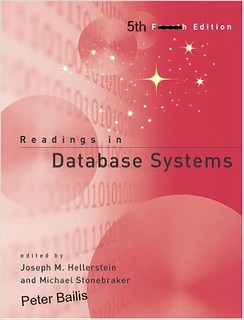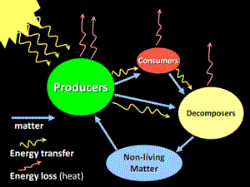Stuff The Internet Says On Scalability For December 11th, 2015
 Friday, December 11, 2015 at 9:11AM
Friday, December 11, 2015 at 9:11AM Hey, it's HighScalability time:
- 100 million: John Henry as played by a conventional computer loses to a quantum computer; 400,000: cores in PayPal's OpenStack deployment; 10TB: max size of Google Cloud SQL database; 9%: Kickstarter projects that don't deliver; $2.3 trillion: worth of The Forbes 400 members; billions: worth of Spanish treasure ship;
- Quotable Quotes:
- Pandalicious: I actually expect that down the road most large open source projects will start distributing a standardized build environment via docker containers.
- @glasnt: "Optimise for speed flexibility & evolution" "Whoever is iterating faster has a huge advantage" - @adrianco #yow15
- @erikbryn: LIDAR goes from $75K to $500, leaves Moore's Law in the Dust
- Henry Miller: One has to believe wholeheartedly in what one is doing, realize that it is the best one can do at the moment—forego perfection now and always!—and accept the consequences which giving birth entails.
- @jedws: "uber is way more reliable on Saturday and Sunday because there are no engineers working on the.system" #yow15
- @samkottle: "Waffles are like kubernetes on a dish" -@rbranson
- @brian_klaas: No server is easier to manage than no server, but are we moving all the complexity to the front-end?
- @Carnage4Life: Death of #unbundling part 2: Facebook shutting down lab which shipped side apps like Hello, Rooms & Slingshot
- @carlosfairgray: Efforts to drive uncertainty out of development have only driven innovation out of development. #yow15 @DReinertsen
- @quinnnorton: “Let’s legislate secure cryptographic backdoors” is the 21st century’s “let’s pass a law to make π = 3”
- @jessitron: To call an API, or just grab it from the database? Don't tap into another team at the spine. Talk to their faces.
- Brian Chesky: One of the keys to get to scale, is to do things that don’t scale. One other important lesson within this lesson is — 100 customers who love you > 1,000,000 users.
- IbanezDavy: The areas of where we expect quantum computers to be faster are roughly known. There are cases where classical computers will still perform better than a quantum computer. But D Wave has been criticized of not truly having a quantum computer, so I think they are motivated in just demonstrating that they do indeed have one.
- @tiagogriffo: "We developed the product so fast that marketing had not time to change the requirements" said a PM. From @DReinertsen talk at #yow15
- @xaprb: push 10,000 metrics/sec at 1-sec resolution for 1000 servers for a year and see if it scales forever ;-)
- Apple has open sourced Swift for reals, not just a code dump months too late to be of use. Swift is on github, you can look at the code, see the entire version history from the very first check-in, see what's changing, contribute, file bugs, etc. So it's a real open source project. Apple is even porting key frameworks like their Foundation libraries over to Swift. If you are looking for the one language to rule them all, that can run fast enough on the server, be used for web apps, and run on mobile, Swift is making the case for being that language, which is no doubt what Apple also wants it for. Incentives align. Expect developers to quickly fillout the tool chain. How does Swift compare? Go vs Node vs Rust vs Swift. Swift is fast, but lacks language primitives for parallelism.
- Ruby can be much faster. 25,000+ Req/s for Rack JSON API with MRuby~ MRuby is a minimal version of Ruby, that can be embedded in any system that supports C...There is a new HTTP web server called H2O, which is really, really fast...When H2O is compiled, it embeds a MRuby interpreter that can be used to run Ruby code. The result: an astonishing: 28,000+ requests per second.
- Fox guarding the chickens. U.S. states pass laws backing Uber’s view of drivers as contractors.
- In the same way there's always a tradeoff between ASIC and white box solutions, there's also an ebb and flow between domain specific languages and general purpose languages. Google replaced Sawzall, a DSL for performing powerful, scalable analysis, with a software ecosystem built around Go. Replacing Sawzall — a case study in domain-specific language migration. The result: we’ve found that with carefully designed libraries we can get most of the benefits of Sawzall in Go while gaining the advantages of a powerful general-purpose language. The overall response of analysts to these changes has been extremely positive. Today, logs analysis is one of the most intensive users of Go at Google, and Go is the most-used language for reading logs through the logs proxy.
- There's a new data mining Barbie. The new talking Hello Barbie doll has the mind of Siri: "Equipped with Siri-like voice-recognition software and a wi-fi connection, Hello Barbie can respond to questions from kids about everything from her favorite color to career goals." Unfortunately I can't take credit for the data mining comment, I heard it on TWiT.
- If you have 70 data caching stations around the world connected with fast links and you are already expert at caching your own content, starting your own CDN makes a lot sense. So that's what Google did. Cloud CDN. Interestingly, Google may be trying to turn these caching stations into datacenters, so says Google's Secret Plan to Catch Up to Amazon and Microsoft in Cloud. If you could use Kubernetes to place work on the edge and combine that with some kind of multi-datacenter database, you would have yourself very low latency access to a lot of mobile devices.
Don't miss all that the Internet has to say on Scalability, click below and become eventually consistent with all scalability knowledge (which means this post has many more items to read so please keep on reading)...





















